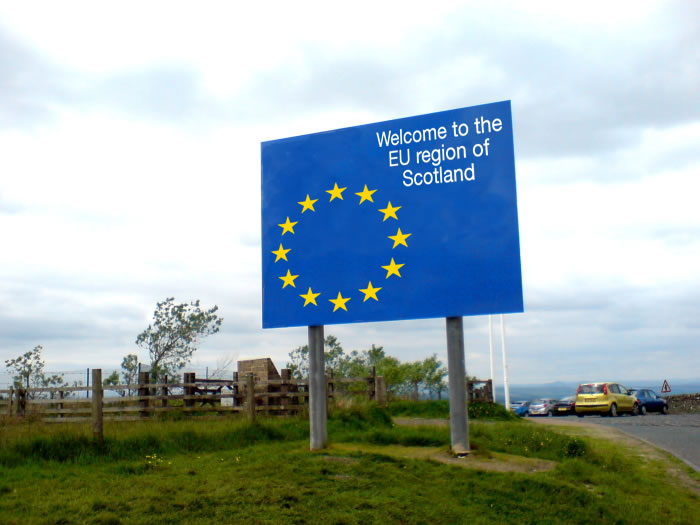The 120,000 European Citizens living in Scotland “may hold the key to breaking up Britain”, the Mail has reported. All Scottish residents, including 33,000 Poles, 13,000 Germans and 4,000 French migrants will be entitled to vote in the referendum on independence held next week. The latest YouGov poll shows the ‘Yes’ campaign in the lead by two points, overturning a 22 point gap from earlier this year.
For many, the perception that Westminster is hostile to the European Union (EU) is persuading them to vote ‘Yes’. Other concerns include the possibility of UKIP gaining Cabinet positions in a coalition government.
Dr Diego Palacios Cerezales, a politics lecturer at Stirling University, said: ‘The question of whether to vote Yes or No is being decided on many different levels for European citizens.
“They see that Scotland is more pro-European than the rest of the country,” said Dr Diego Palacios Cerezales, a politics lecturer at Stirling University. “There is the chance of a referendum as early as next year on Britain’s membership of the EU, which could see the UK leave. That may turn many towards the Yes camp in this vote.”
“I say ‘Ja’ to an independent Scotland, to chart a different course than the suicidal, City-dependent and fossil-fuelled trajectory that the London-dominated UK is on,” said Daniel Mittler, an environmental activist and Edinburgh University graduate. “Scottish self-rule has the potential to be a building block for a Europe of the regions,”
For massage therapist Camilla Hey, it was the thought of UKIP that was prompting a Yes vote: “The idea of a Conservative and Ukip coalition freaks me out. The Scottish are very clear that they want to stay in the EU and so do I. If we vote No and remain tied to England, and then vote to quit the EU, we will go back to Germany.”
And there were signs amongst the Germans that Scottish First Minister Alex Salmond’s rhetoric on a lack of electoral representation in the Union was having an impact: “I do, very much, see arguments in favour of Scottish independence. Creating a new country from scratch gives you the opportunity to establish proportional representation in the electoral system,” said Margarete Tan, another Edinburgh resident, although she added that she was so far undecided.
However, the Yes campaign would be mistaken if it thought it could categorically rely on EU residents. Hungarian born council worker Ildiko Mair, who now lives in Aberdeen said “The Hungarian community here all want the same – that is to say no thanks. I have no idea why someone wakes up one morning and after 300 years of unity decides to try and fix what is not broken.”
Last month, a survey of 245 Scots-Poles found that two thirds were intending to vote ‘No’. Andrew Kocaj, managing director of the Polish Family Support Centre in Edinburgh said: ‘I’m quite happy with the way things are.”

COMMENTS
Please let us know if you're having issues with commenting.